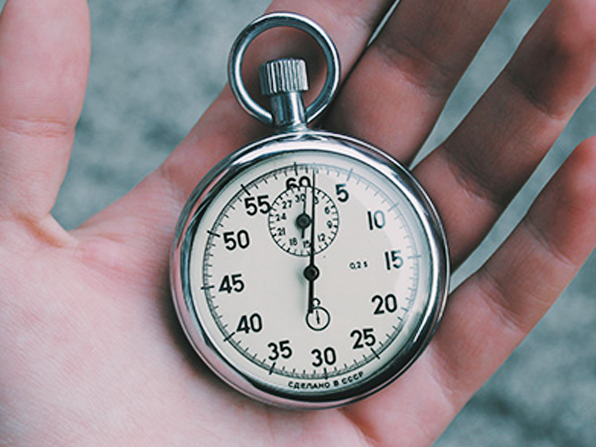
I may not wear a white coat, but as a personal trainer who's helped people with weight loss for over a decade, I’ve learned to recognize the subtle signals that often appear before doctors issue warnings.
The BMI doesn't always paint the full picture of your health, but your body doesn't lie.
You don't need a diagnosis to spot these seven warning signs. And if you're experiencing any of them, your body might be telling you it's time to shed some excess weight.
How Can You Tell If You Need to Lose Weight?
If you often run out of breath, feel tired, or experience joint pain, these could be signs you need to lose weight. Poor sleep quality, frequent sweating during routine tasks, or cognitive challenges might also indicate unhealthy weight.
I'll elaborate on the seven silent body signals and explain why ignoring them isn't a good idea, so you can decide if it's time to start a weight loss journey.
1. Frequent Energy Crashes That Disrupt Your Day
I see this all the time with new clients. They drag themselves through afternoons, reaching for another coffee or energy drink just to function. If you're experiencing midday slumps or post-meal crashes, your body weight might be the culprit.
Excess fat affects how your body processes glucose. When carrying extra pounds, your blood glucose levels tend to spike dramatically after eating, then plummet soon after. This roller coaster leaves you exhausted at random times throughout your day when you should feel alert and focused.
Why Low Energy Levels Shouldn't Be Ignored?
What makes this concerning is how it snowballs over time. Energy crashes lead to less physical activity, which leads to more fat storage. Many of my clients didn’t realize this cycle was happening, but once we dialed in a solid program and added SKALD to the mix, they hit their goal weight in just a few months.
Don't brush off consistent fatigue as “just being busy.” Your cardiovascular system works harder with every extra pound, essentially running a marathon while sitting still. The strain taxes your heart, increasing the risk of heart disease down the road.
2. Everyday Movements Have Become Challenging Tasks
Don't accept struggling through basic tasks as “just getting older” or “being out of shape.”
If climbing stairs, picking something up from the floor, or walking to your car leaves you winded, your body sends you a clear message about your weight. Some folks I trained never thought about how much their mobility had declined until we did basic movement assessments.
Your body adapts so gradually that restrictions in movement can sneak up on you.

Why is Reduced Mobility More Than Inconvenient?
When everyday tasks become challenging, your activity levels naturally decrease, which starts a dangerous downward spiral. Obviously, less movement leads to more fat storage. But it also causes muscle loss, making it even harder to move.
Your body needs movement to maintain proper blood pressure and keep your systems functioning optimally. Limited mobility is associated with higher rates of developing diabetes, heart issues, and a substantially higher risk of falls as you age.
I believe maintaining your independence is one of the inspiring reasons to lose weight.
3. Your Sleep Quality is Deteriorating Without Explanation
If you're experiencing unexplained sleep troubles, tossing and turning all night, and waking up feeling like you barely slept at all…you're probably not at a healthy weight.
Excess fat, especially around your neck and midsection, can lead to sleep apnea and irregular breathing patterns. Your airway gets partially blocked, causing brief awakenings throughout the night that you might not even remember in the morning.
Why is Poor Quality Sleep Bad for You?
It's a red flag about your overall health that you shouldn't ignore to prevent serious complications like high blood pressure, heart attack, and stroke if addressed early. Poor sleep also impacts the hunger hormones and creates another vicious cycle, increasing appetite and weight gain.
Last but not least, not sleeping well affects your immune system.
My uncle Mark learned this lesson the hard way. He'd gained about 40 pounds over three years and brushed off his increasingly broken sleep as “stress from work.” The snoring started, then morning headaches. Within six months, his immune system tanked, catching every cold that passed through his office and battling bronchitis twice.
4. Joint Pain During Normal Activities That Wasn't There Before
If your knees crack like bubble wrap whenever you squat down, your joints protest. This could be from old sports injuries, but it also could be a sign that you need to lose weight.
Each extra pound of body weight adds around four pounds of pressure on your knees. So if you're carrying 30 extra pounds, that’s 120 pounds of extra force on every step.
This pain isn't limited to the knees. Ankles, hips, and even your lower back absorb this impact. Your body wasn't designed to carry excess weight for years, and your joints are often the first to surrender under the strain.
What Happens if Joint Pain is Left Untreated?
The connection between obesity and arthritis isn't coincidental. Excess fat tissue creates inflammation throughout your body, directly damaging your joints over time. This inflammatory response affects more than just movement—it's linked to numerous health conditions.
What makes joint pain even sneakier in my experience is how it limits the very activities that could help you lose weight. Many people I train avoid certain exercises because they hurt, and that's a hard-to-escape trap.
5. Your Posture and Walking Gait Have Noticeably Changed
Your body adapts to carry extra weight by shifting your center of gravity. These postural changes happen gradually enough that you might not notice them, but they put abnormal stress on your spine, hips, and feet.
Your natural walking pattern changes to accommodate the additional load.
I immediately spotted it in a lady who entered the gym last month. She was leaning back slightly while standing, her shoulders rounded forward. When walking, her feet splayed outward unnaturally.
First, I advised her to avoid unhealthy ways to lose weight that she believed were effective. Then, I encouraged her to work on rebuilding proper movement patterns.

Why is an Incorrect Posture Harmful?
The danger here goes beyond appearance. Altered gait patterns lead to muscle imbalances; some muscles become overstretched while others tighten and shorten. This causes weak spots in your support system, setting you up for injuries during even simple movements.
6. Excessive Sweating During Your Daily Routine
This is something I see all the time while teaching a group class. New members soaked through their shirts just from our basic warm-up exercises.
That's because the extra pounds force you to expend more energy for every movement. Your heart pumps harder, your metabolism runs hotter, and your body temperature rises.
So, if you sweat doing things that shouldn't cause perspiration at all (walking short distances or climbing a single flight of stairs), it's time to set weight loss goals and pursue them.
Why Excessive Sweating Isn't Just Uncomfortable?
Sweating too much indicates that your cardiovascular system is under constant stress. Your heart is working much harder than it should during normal activities, which can lead to high blood pressure and an increased risk of heart disease over time. Excessive sweating (hyperhidrosis) also makes you more prone to skin infections.
7. You Experience Mental Fog or Difficulty Concentrating
Mental fog isn't always connected to weight in people's minds, but the link is stronger than most think, especially if you work a desk job. The more weight you carry, the less optimal blood flow and oxygen your brain receives, naturally leading to cognitive challenges and other health issues.
So, if your thinking isn't as clear as it once was, don't rush to dismiss it as aging or stress.
Why Brain Fog Should Be Taken Seriously?
Well, the relationship works both ways. Being overweight causes mental fog, and when your brain feels sluggish, you're less likely to have the mental energy to plan healthy meals, stick with exercise, and stay motivated to lose weight.
The good news is that, based on my years of experience, mental clarity is one of the first things to improve as you move toward a healthier weight.



